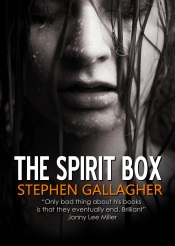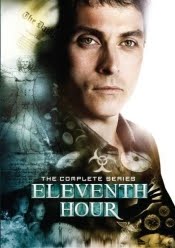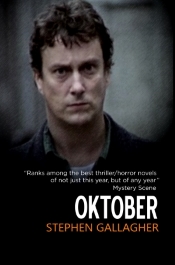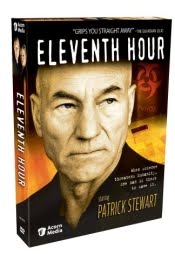Earlier this year I gave long answers to some very basic questions for a film student's diploma dissertation.
Is there a difference in writing for UK and US audiences, and if there is, what is it (cost, budget, more/less freedom)?
I don't think the audiences are that different, but I find that the
commissioning cultures are. I much prefer dealing with the US, where they don't
fanny around. There I've pitched a script in the morning and had a Yes before
lunchtime. The energy level's higher and if something doesn't work out, it
doesn't count against you. You've simply proved yourself a player. UK
commissioners are unclear on what they want and indecisive over what they're
shown, and they have no concept of the value of a fast No.
In the writing I don't really discriminate between US and UK because the stuff
I do tends to work in either venue. Either that or I've always been a misplaced
American TV writer at heart and that would explain why getting every one of my
UK projects made has been like re-inventing the wheel. I like US pace and
structure. To me it's all about witnessing things as they happen, not watching
conversations about events.
Budget's not such an issue at the concept stage where the ideas set the agenda. Once a show is under way then budget is a factor, because it's been set before
the scripts are written. Every episode is scheduled for, say, 8 shooting days,
with maybe 5 of them in the studio and 3 of them 'out'. In the studio you'll
want to make maximum use of your standing sets, and on your 'out' days you'll
want to combine locations to minimise time-consuming crew moves. I once had to
lose a crowd scene in order to be able to afford a submarine. You can call that
a limiting of freedom; to me it's just the way to what you want.
What are the differences between original material and adaptations?
With an adaptation you're spared the sweaty anxiety of the early stages where
you have an idea, and you feel it's good, but you don't yet know if there's a
form in which it will work. When you're adapting your own work or someone
else's, that question's already been solved. You may need to come up with a
radical reconception of form to take it from one medium to another, but the
baseline is that the ideas fit together, they go somewhere, and there's a pool
of characters and incidents to draw upon.
With an original, you first have to do all the work that gets you up to that
baseline. For me it's the crucial part. It's satisfying but it's not enjoyable.
Friday 19 July 2013
Subscribe to:
Post Comments (Atom)





































No comments:
Post a Comment